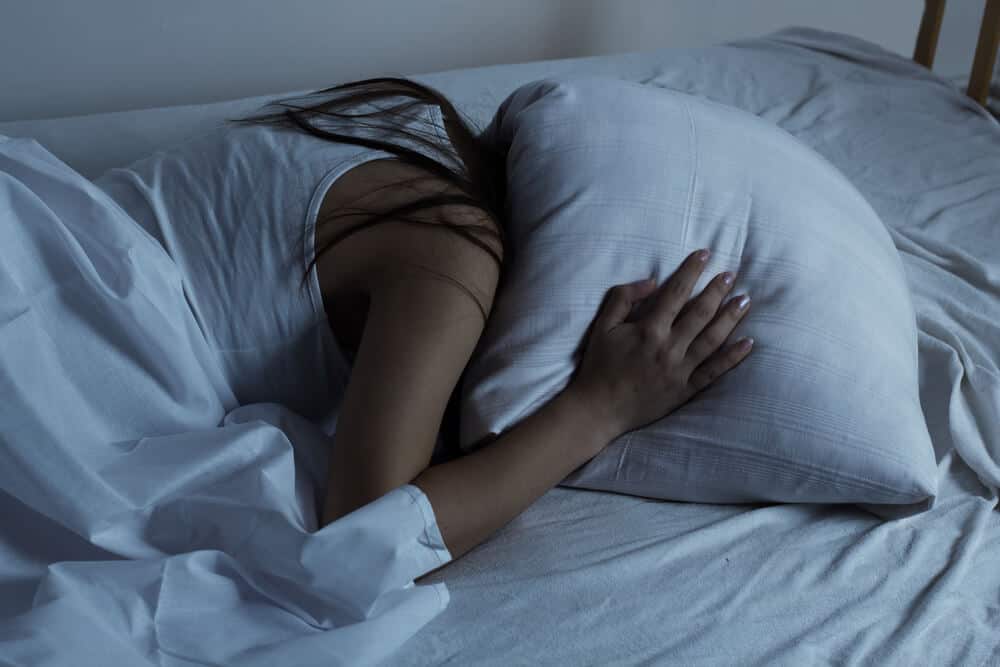It is a well-known fact that your body needs sleep. Everyone! Studies have shown that sleep is a contributing factor to maintenance of your overall health no matter your age. It facilitates growth, boosts your immune system, and most importantly, impacts your mental health.
Consider how you feel on Monday morning after a busy weekend. Maybe you were at your son’s football game on Friday night, then a soccer tournament all day on Saturday, went out to dinner with friends that evening and hosted a barbecue all day on Sunday, including cleaning your house and cooking! Imagine the exhaustion that you feel when Monday finally rolls around. Now think about the amount of sleep that you received over the weekend. More than likely you went to bed too late each night, possibly on a full stomach, and woke up early each morning. You did not give your body the rest that it required all weekend although you had a lot of fun!!!
By Monday, your brain is foggy, your body is fatigued, and your day starts off badly. You can’t find your keys, you spill your coffee, and you miss the train. Why? Aside from the obvious lack of sleep, you deprived your brain of the much-needed fuel that keeps your mind and body refreshed and energized. And that was just one weekend! Imagine the impact that a lack of sleep could have on your brain if you engaged in this kind of activity on a regular basis? Ultimately, your mental health would inevitably be impacted as you regularly walk around in a zombie-like, catatonic state. Your ability to make decisions, think logically, and manage your emotions would be impaired.
Now, think about a teenager. They want to experience life in the fast lane. They want to have an active, exciting social life. If they play sports, they have practices and games late into the night, causing them to do homework into the wee hours. When they finally do go to sleep, their brains do not necessarily shut down, replaying all of the events of their busy day and the craziness of the day to come. Their bodies crave sleep yet their lifestyle prohibits them from getting the needed rest. Unfortunately, the very nature of a teenager prevents them from getting the sleep that they need until eventually they hit a brick wall.
Do you remember when your child was just a baby? They slept often and whenever their body and mind told them that it was time to recharge. What happened to teens listening to their bodies? No, instead, they push through, and as many say, “burn the candle on both ends.” Unfortunately, researchers have learned that by depriving themselves of necessary sleep, they are putting their bodies and minds at risk of very serious repercussions leading to mental disorders such as depression.
It has been disputed by therapists and researchers whether sleep deprivation is a symptom of mental disorders in teens or a contributing factor. A study conducted by the University of Texas Science Health Centre found that “teens were four times as likely to be depressed if they were sleep deprived.” While poor sleep habits is a common symptom of depression, additional research has found that a lack of sleep can increase the likelihood that a teen experiences depression.
Signs of sleep deprivation
Fortunately, sleep deprivation is pretty easy to spot in teenagers.
- Physical signs including dark circles under the eyes and drooping eyelids is typically a very apparent sign that your teen is not getting enough rest.
- Although the teenage years also bring moodiness, a sleep deprived teen will have difficulty getting out of bed in the morning, will be groggy and more irritable than usual.
- Skin problems such as acne and eczema have been known to flare up when a teen is not sleeping enough.
- Scientists tell us that your immune system is recharged when you sleep. When they do not sleep enough or well, teens may more easily catch the random cold or feel rundown more often.
- As we talked about with your own lack of sleep, teens may wake up feeling foggy, confused and have trouble concentrating.
- Forgetfulness is a common theme among teenagers as they try to retain a lot of information every day. If their brain is not functioning at an optimal level because of lack of sleep, they are more likely to be forgetful.
- A lack of sleep could cause your teen to temporarily zone out or to appear to disconnect from the conversation.
- Sleep deprivation could cause the body to produce a hormone called ghrelin, otherwise known as the hunger hormone which increases their appetite, possibly leading to weight gain.
- Teens who suddenly feel the urge to nap may be sleep deprived. Unfortunately, napping during the day has the potential to create poor sleep habits at night, thus creating a vicious cycle.
The question is, how does a lack of sleep have the potential to trigger depression in teens? Depression is one of the most common mental health disorders experienced by teens with an estimated 20% of teens being impacted by it. The average teenager requires no less than 9 hours of restful sleep per night to wake refreshed and energized to meet the challenges of the day. In a recent study conducted by the Journal of Youth and Adolescence, 20% of teens get less than five hours per night. The study also discovered that with less and less sleep, the risk of mental health issues increases among teens. The study reports:
- 38 percent increase in feeling sad and hopeless
- 42 percent increase in suicidal thoughts
- 58 percent increase in suicide attempts
- 23 percent increase in substance abuse
Although this study did not specifically identify sleep deprivation as the cause of these risk factors, it does tell us that a lack of sleep severely impacts and reduces brain function, thereby reducing their ability to self-regulate, to manage and process feelings and emotions, and jeopardizes their ability to judge risky behavior and impulses. In other words, the brain of a sleep deprived teen does not function at full capacity, allowing confusion, stress, and emotional strain to override sound logic, happiness, and good feelings. Unfortunately, the snow ball effect occurs as depression takes over and the lack of sleep pushes a teen further towards the disorder.
Aside from their busy lives, teens may have difficulty sleeping. They may be thinking about the details of the day, worried or anxious about upcoming events, consumed by the need to fit in, or the pressure to succeed. Remember that the teenage years come with their own pressures, stresses and needs. Like many adults, they may have a difficult time “shutting off” their brains at night time, leaving the problem-solving for the daytime.
If you suspect that your teen is not getting enough sleep which could be causing depression or other mental health disorders, take action now! Reach out to your teen’s pediatrician or the trained mental health professionals at Beachside Treatment Center. After a thorough evaluation, a diagnosis of your teen’s condition will be determined and a treatment plan designed to give your teen the best opportunity to recover and manage their symptoms of depression.
During treatment, therapists will utilize a variety of psychotherapy options to determine the root cause for their sleepless nights. Is it that they are worried about fitting in? Have they resorted to substance use and abuse to mask their feelings and therefore, can’t fall asleep? Are they trying so desperately to please others that they cannot find time for themselves? Do they keep themselves so busy to fill a void in their life or how they value themselves? By answering many of these questions through talk therapy, teens can learn how to manage their symptoms of depression, create coping skills to help with problem solving, and get more rest. Although it is still unclear, which came first, the chicken or the egg, the lack of sleep or the depression, through therapy, teens can gain control of their depression and get more sleep.

Therapists and counselors also recommend several other methods to help teens to get more sleep and ward off the signs and symptoms of depression:
- Doing physical activity during the day promotes sleep
- Set aside your problems to address during the day
- Avoid caffeinated drinks in the evening
- Avoid eating several hours before bedtime
- Allow yourself some time to wind down at least 30 minutes before bedtime including shutting down screens and devices.
- Say “no” to events, social gatherings and parties once and awhile to relax, rest and get some extra sleep
- Try to stick to a sleep schedule that includes a regular bedtime and time to get up
If you are a parent with a teen who is experiencing a mental health disorder, sleep may be the one area of your life that gets neglected as you struggle and worry about your teen’s health. As important and beneficial as sleep is to a teen to prevent and manage depression, it is just as important for caregivers to create a routine of self-care which includes getting adequate sleep. Take a break now and get some sleep!
And when in doubt, don’t hesitate to reach out to Beachside!

